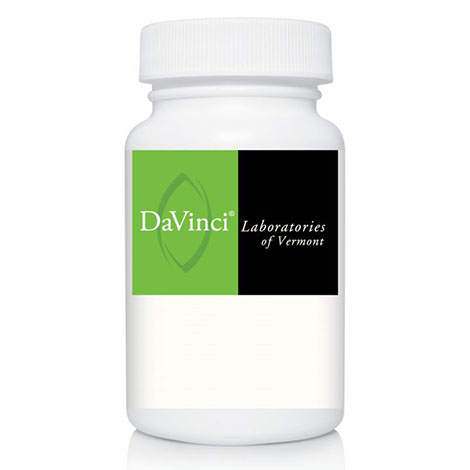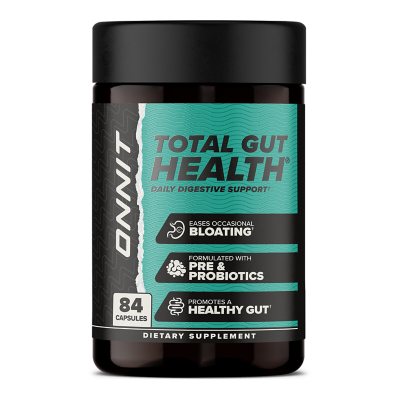How a Gut Health Supplement Can Improve Your Gut and Boost Immunity
How a Gut Health Supplement Can Improve Your Gut and Boost Immunity
Blog Article
Discover the Trick to Digestion and Immunity With Gut Wellness Support

Understanding Gut Health
Understanding digestive tract wellness is critical for total wellness, as it plays a significant duty in food digestion, resistance, and even psychological wellness. The digestive tract, comprising the stomach system, is accountable for breaking down food, absorbing nutrients, and getting rid of waste. A balanced digestive tract atmosphere makes sure reliable digestion, permitting the body to make use of nutrients efficiently.
Furthermore, digestive tract health considerably affects the immune system. The intestine houses a significant part of the body's immune cells, and a healthy gut can help ward off microorganisms and lower inflammation. Disturbances in digestive tract health and wellness can bring about an over active immune reaction, potentially contributing to autoimmune conditions and allergic reactions.
Furthermore, the gut is often referred to as the "2nd mind" as a result of the gut-brain axis, an intricate communication network linking the gut and the brain. This connection affects mood, cognition, and emotional health. Issues such as dysbiosis, identified by a discrepancy in intestine germs, have actually been connected with psychological health and wellness conditions, including stress and anxiety and depression.
The Digestive Tract Microbiome Explained

The digestive tract microbiome, a varied community of microorganisms living in the stomach system, plays an essential function in maintaining gastrointestinal health and wellness and general wellness. Making up trillions of germs, infections, fungi, and various other microorganisms, this complex ecosystem help in the food digestion of food, the synthesis of vital nutrients, and the regulation of metabolic procedures.
Each person's intestine microbiome is unique, affected by factors such as diet, way of living, genetics, and ecological exposures. A balanced microbiome supports optimal digestion by breaking down complicated carbohydrates, producing short-chain fats, and facilitating the absorption of nutrients. On the other hand, a discrepancy, usually described as dysbiosis, can result in gastrointestinal problems, including short-tempered digestive tract syndrome (IBS) and inflammatory digestive tract condition (IBD)
Research study has shown that a varied microbiome is linked with much better health outcomes, emphasizing the value of dietary choices in supporting these microorganisms. Foods rich in fiber, probiotics, and prebiotics, such as fruits, vegetables, and fermented products, can advertise a healthy and balanced microbiome. Understanding the digestive tract microbiome is essential for establishing targeted interventions targeted at enhancing digestive system wellness and preventing gastrointestinal conditions.

Link Between Food Digestion and Resistance
A durable link exists in between digestion and immunity, highlighting the essential duty of the intestine in maintaining general health and wellness. The gastrointestinal system is home to trillions of microorganisms that form the gut microbiome, which significantly affects both gastrointestinal processes and immune feedbacks. This complex ecological community aids in breaking down food, taking in nutrients, and offering important metabolites that click this site sustain immune function.
When food digestion is reliable, the gut barrier stays intact, avoiding harmful pathogens from entering the bloodstream. Roughly 70% of the immune system stays in the gut-associated lymphoid cells (GALT), which engages very closely with the gut microbiome.
Tips for Supporting Gut Wellness
Supporting intestine health and wellness is crucial for maintaining both gastrointestinal performance and a well-functioning body immune system. To cultivate optimum gut wellness, think about incorporating several useful approaches right into your everyday regimen.
First, focus on hydration. Drinking ample water supports food digestion and assists preserve the mucosal cellular lining of the intestines. In addition, regular exercise can boost gut motility and promote a diverse microbiome.
Conscious eating practices are additionally important. Chewing food completely and consuming gradually can assist digestion and stop overeating, which might emphasize the gut. Furthermore, managing tension with techniques such as meditation, yoga exercise, or deep-breathing exercises can positively influence intestine health and wellness, as stress is known to interrupt digestive processes.
Including prebiotics and probiotics right into your regimen is an additional effective technique. While details foods will be reviewed later, recognizing the value of these elements is essential. Prebiotics act as food for useful gut bacteria, while probiotics introduce live useful organisms.
Lastly, stay clear of excessive usage of prescription antibiotics, as they can interrupt the balance of intestine plants. By following these pointers, you can significantly add to the upkeep of a healthy and balanced digestive tract, which is crucial for total wellness and vigor.
Foods That Promote Intestine Wellness

Fermented foods, such as yogurt, kefir, kimchi, and sauerkraut, are rich in probiotics, which are advantageous bacteria that support gut plants and boost food digestion. These foods can aid bring back balance in the gut, especially after antibiotic use or digestive system disruptions.
In addition to fermented alternatives, prebiotic foods, such as garlic, onions, asparagus, and bananas, function as nourishment for these probiotics, advertising their growth and task. These soluble fibers support gut mobility and can ease issues like bowel irregularity.
In addition, integrating high-fiber foods, including entire grains, fruits, vegetables, and veggies, is crucial for preserving have a peek at these guys a healthy digestive tract. Fiber help in routine bowel movements and aids protect against digestive problems.
Last but not least, omega-3 fats discovered in fatty fish, flaxseeds, and walnuts have anti-inflammatory properties that can further sustain intestine health and wellness. Highlighting these foods pop over to this site in your diet plan can result in a robust digestion system and improved immune function.
Verdict
In final thought, prioritizing digestive tract wellness is necessary for optimizing food digestion and improving resistance. A well balanced digestive tract microbiome, affected by dietary options and lifestyle factors, plays an essential duty in nutrient absorption and swelling decrease.
Recognizing digestive tract health is important for general health, as it plays a substantial role in digestion, immunity, and even psychological wellness. The intestine houses a substantial section of the body's immune cells, and a healthy and balanced digestive tract can help fend off microorganisms and minimize inflammation.Furthermore, the digestive tract is often referred to as the "2nd brain" due to the gut-brain axis, a complicated interaction network linking the intestine and the brain.A durable link exists between food digestion and immunity, highlighting the vital function of the intestine in keeping overall health and wellness.In verdict, prioritizing intestine health is vital for optimizing food digestion and boosting resistance.
Report this page